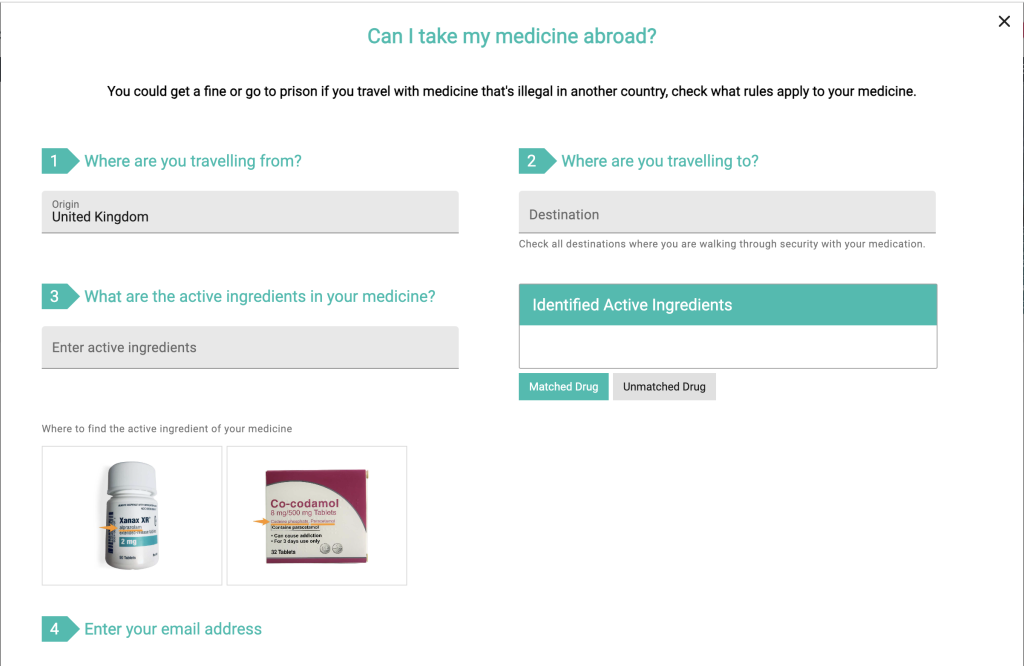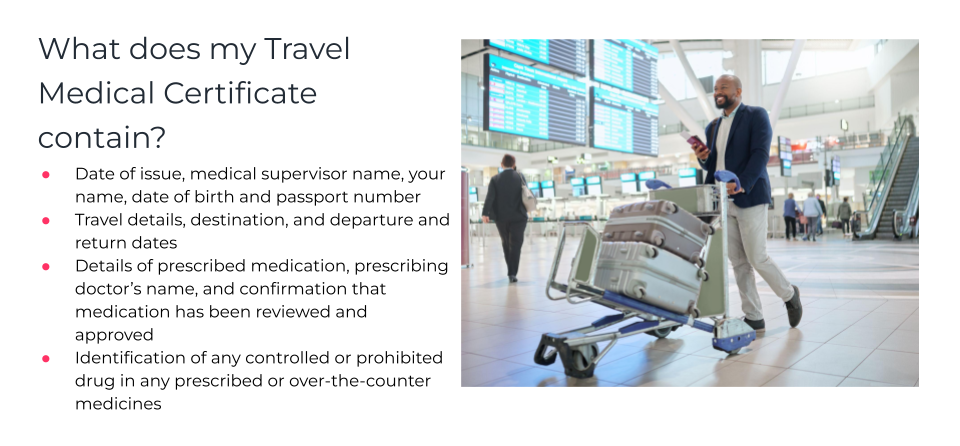For adventurous souls, backpacking is an invitation to discover the world, promising boundless exploration and transformative experiences. Yet for those managing chronic conditions or relying on prescription medication, the excitement can be tinged with the practical concerns of medication management while on the road. Whether you’re embarking on an adventure in southeast Asia or gearing up for a Euro summer, DocHQ is here to equip you with the knowledge and tools to navigate the world with your medication.
1. Check if your medication is restricted in your destination country
Not all countries welcome every medication with open arms. Certain prescriptions, even over-the-counter medications, might face strict regulations or outright bans. Imagine the heartbreak of reaching your dream destination only to have your essential medication confiscated at customs. To avoid this disaster, research your destination’s medication laws before you pack your bags.
DocHQ’s FREE Travel Medicine Checker is your backpacker’s best friend in this situation. Simply enter your medication name and country and you’ll instantly know if your medications are legal, giving you peace of mind before you even book your flight.
Remember: If your medication requires a doctor’s note, DocHQ’s Travel Medicine Checker also lets you order a GP-signed letter right away, saving you precious time and hassle.

2. Medications should be in their original packaging and containers
While the aim of every backpacker is to minimise baggage, resist the urge to decant medication into smaller containers. Customs officials frequently verify prescriptions against medication packaging, and discrepancies can lead to delays or even confiscation. Stick to the original labelled containers for a smooth customs experience.
Traveller’s Guide to Medication Restrictions Across the Globe
3. Stay within the limits: a 30-day supply is the golden rule
Most countries have a limit on the amount of medication you can bring. Generally, a 30-day supply is considered acceptable, but exceeding this could raise suspicion. To avoid complications, obtain a doctor’s letter explaining your extended medication needs and travel duration. Remember, DocHQ’s Travel Medicine Certificate also confirms restrictions on the quantity you’re allowed to carry.
Case study of times when people have gotten in trouble for carrying medication abroad
4. Carry essential medication in your hand luggage
Checked luggage could often go missing or be delayed for a few days. Opt for carry-on luggage to ensure your medications stay by your side, even if your suitcase goes missing.
Remember: Liquid medication exceeding 100ml requires special attention. Contact your airline and all transit airports beforehand to ensure compliance with regulations. Exemptions are possible, but documentation from a healthcare professional is often required. DocHQ’s Travel Medicine Certificate makes this process easy and hassle-free. Our GPs review your prescriptions and provide the necessary documents, plus a Travel Guidance Letter outlining specific restrictions and additional documentation needs.
5. A doctor’s letter is essential for both your carry-on and any shipped medication

Whether your medication is restricted in your destination country or not, it is advised that you accompany all medications with a signed doctor’s letter. It validates your need for medication and can prevent unnecessary hassles at customs.
While backpackers may not always have access to their necessary prescriptions in every country they visit, it’s common practice for friends and family to send them medication shipments. However, to avoid complications like those faced by Carrie Russell, who was detained in Japan due to an improperly documented shipment, it’s crucial to ensure all shipped medications are accompanied by a doctor’s letter.
Conclusion
Backpacking with medication doesn’t have to be a logistical nightmare. By following these tips and utilising resources like DocHQ’s Travel Medicine Checker and Travel Medicine Certificate, you can explore the world with confidence, knowing your health is well-managed.



